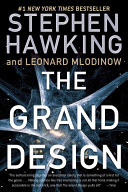Human Behavior is Dictated by Laws of Nature, but Too Complex to Predict
While conceding that human behavior is indeed determined by the laws of nature, it also seems reasonable to conclude that the outcome is determined in such a complicated way and with so many variables as to make it impossible in practice to predict. For that one would need a knowledge of the initial state of each of the thousand trillion trillion molecules in the human body and to solve something like that number of equations. That would take a few billion years, which would be a bit late to duck when the person opposite aimed a blow.
because it is so impractical to use the underlying physical laws to predict human behavior, we adopt what is called an effective theory. In physics, an effective theory is a framework created to model certain observed phenomena without describing in detail all of the underlying processes. For example, we cannot solve exactly the equations governing the gravitational interactions of every atom in a person's body with every atom in the earth. But for all practical purposes the gravitational force between a person and the earth can be described in terms of just a few numbers, such as the person's total mass. Similarly, we cannot solve the equations governing the behavior of complex atoms and molecules, but we have developed an effective theory called chemistry that provides an adequate explanation of how atoms and molecules behave in chemical reactions without accounting tor every detail of the interactions. In the case of people, since we cannot solve the equations that determine our behavior, we use the effective theory that people have free will. The study of our will, and of the behavior that arises from it, is the science of psychology. Economics is also an effective theory, based on the notion of free will plus the assumption that people evaluate their possible alternative courses of action and choose the best. That effective theory is only moderately successful in predicting behavior because, as we all mow, decisions are often not rational or are based on a defective analysis of the consequences of the choice. That is why the world is in such a mess.
Notes:
So the hypothesis that we have freewill is convenient, and the Economic model that we act in our best interests helpful, but not always correct.
Folksonomies: economics psychology human nature
Taxonomies:
/science/physics (0.454234)
/science/chemistry (0.401269)
/science/medicine/psychology and psychiatry (0.338891)
Keywords:
effective theory (0.969199 (negative:-0.109359)), human behavior (0.864878 (negative:-0.347443)), certain observed phenomena (0.699082 (neutral:0.000000)), possible alternative courses (0.671079 (positive:0.766466)), Economic model (0.578372 (positive:0.360321)), best interests (0.578070 (positive:0.360321)), equations (0.573215 (negative:-0.218179)), initial state (0.571866 (negative:-0.218179)), gravitational force (0.563115 (positive:0.238755)), gravitational interactions (0.561578 (neutral:0.000000)), adequate explanation (0.561529 (neutral:0.000000)), total mass (0.559378 (neutral:0.000000)), practical purposes (0.558214 (positive:0.238755)), complex atoms (0.557525 (neutral:0.000000)), defective analysis (0.557450 (negative:-0.609593)), physical laws (0.557384 (negative:-0.510992)), chemical reactions (0.555948 (neutral:0.000000)), human body (0.553414 (negative:-0.218179)), person (0.550976 (positive:0.238755)), molecules (0.512941 (negative:-0.218179)), people (0.477350 (positive:0.642251)), nature (0.473627 (negative:-0.265668)), earth (0.463719 (positive:0.238755)), freewill (0.441741 (neutral:0.000000)), outcome (0.437903 (negative:-0.377347)), hypothesis (0.437392 (neutral:0.000000)), variables (0.435969 (negative:-0.377347)), mess (0.435037 (negative:-0.825505)), way (0.434733 (negative:-0.377347)), practice (0.434631 (negative:-0.377347))
Entities:
chemical reactions:FieldTerminology (0.704476 (neutral:0.000000)), billion years:Quantity (0.704476 (neutral:0.000000))
Concepts:
Scientific method (0.979473): dbpedia | freebase
Chemistry (0.839255): dbpedia | freebase | opencyc
General relativity (0.811769): dbpedia | freebase | opencyc
Science (0.759772): dbpedia | freebase | opencyc
Philosophy of science (0.675826): dbpedia | freebase
Universe (0.620425): dbpedia | freebase
Hypothesis (0.603752): dbpedia | freebase
Newton's laws of motion (0.550972): dbpedia | freebase | opencyc | yago





